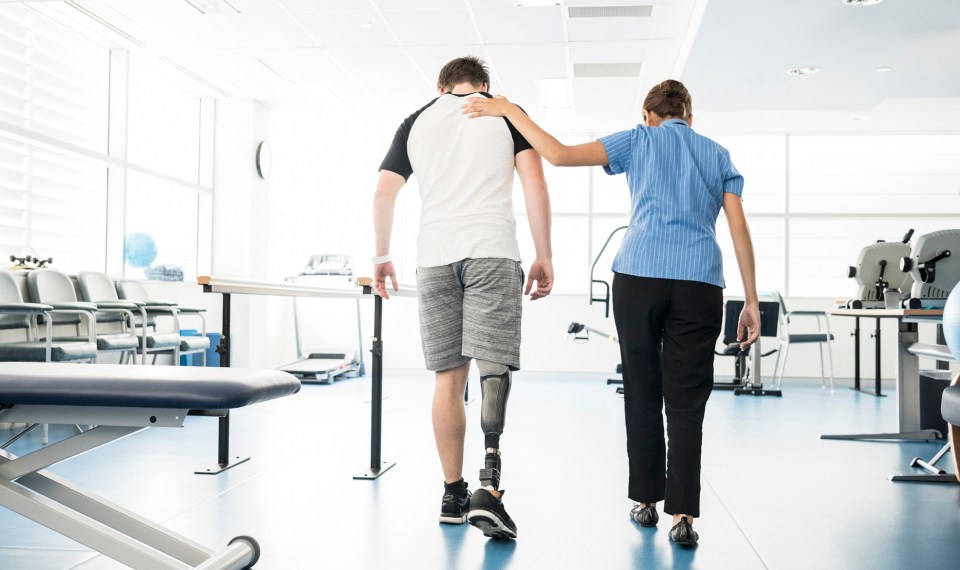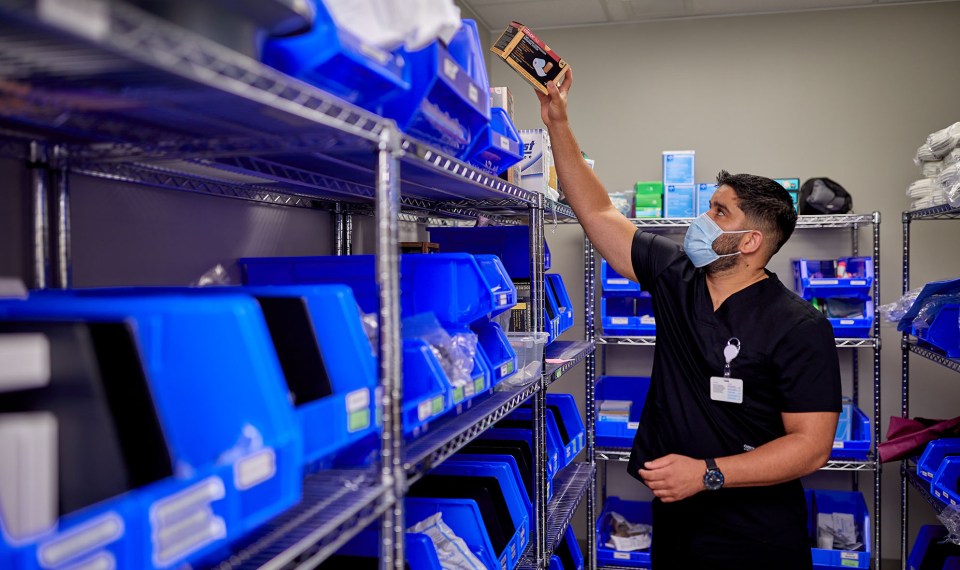Through its annual grant offering, Encompass Health continues to further research of therapy in the rehabilitation setting. In 2021, the Company invited Encompass Health physicians, employees and other qualified candidates in the medical and academia communities to apply to receive funding for research related to the inpatient rehabilitation facility (IRF) care setting.
Since the program’s inception in 2016, an average of four applicants per year have received funding. To date, more than $150,000 in grant funding has been distributed. This year, four clinicians from Encompass Health hospitals around the country have been selected to have their studies funded in part by an Encompass Health grant.
The following applicants have been selected as recipients of the 2021 grant program.
Emily Bahr, OTR/L, MOT, Vanderbilt Stallworth Rehabilitation Hospital
The Implementation of a Universal Access Hospital Room for Individuals with Impaired Upper Extremity Function
Individuals with reduced upper extremity (EU) function may struggle to perform standard activities of daily living due to limited access to the items and tools in their environment. The intent of this study is to develop a safe, secure and streamlined program that enables Encompass Health facilities to utilize technology in hospital rooms that provide patients universal access to items such as television, blinds, lights, thermostats, etc.
Individuals with impaired use of upper extremities, particularly hand function, can include patients recovering from or living with spinal cord injury, amputation, stroke, muscular dystrophy, ALS, MS and many other diagnoses. This study will explore whether “smart room” technologies lead to more effective care for patients with limited upper extremity function and generally improve patients’ sense of autonomy and overall satisfaction.
Elena Donoso Brown, PhD, OTR/L, Encompass Health Rehabilitation Hospital of Sewickley
Determining Factors that Contribute to Rehabilitation Home Program Adherence in People with Acquired Brain Injury
There is limited information on which factors predict adherence to rehabilitation home programs after discharge from an inpatient setting. In addition, while the overall life experience of caregivers for persons with acquired brain injury has been explored, there is minimal understanding of caregivers’ experiences in the process of training and implementing rehabilitation home programs.
What factors predict adherence to rehabilitation home programs by persons with acquired brain injury, specifically traumatic brain injury and stroke? How do caregivers describe their experience with the education and implementation of these programs? This study will explore these questions and support the development of enhanced practices for the prescription and implementation of rehabilitation home programs for people with acquired brain injury.
Prateek Grover, MD, PhD, MHA, The Rehabilitation Institute of St. Louis, an affiliation of BJC HealthCare and Encompass Health
National Functional and Process Outcomes of Post Lower Limb Loss Inpatient Rehabilitation
There are 2 million people living with limb loss in the United States, and these numbers are expected to rise alongside increasing incidence of diabetes. Additionally, the impact of the COVID-19 pandemic on limb care is just beginning to be understood. Rehabilitation hospitals play a vital role in helping limb loss patients by providing multidisciplinary rehabilitative care. The inpatient setting is vital for post-limb loss rehabilitation stages such as pre-prosthetic and prosthetic rehabilitation.
The purpose of this study will be to better understand baseline characteristics and outcomes of inpatient lower-limb loss rehabilitation over time (pre-COVID-19 and after) and across regions. These results are intended to improve understanding and guide interventions at several levels, including quality of patient care, care outcomes including patient satisfaction, potential resource utilization, and evidence for IRF-based care for limb loss including prosthetic rehabilitation.
Sarah Hendrix, PT, DPT, CHRISTUS Trinity Mother Frances Rehabilitation Hospital, a partner of Encompass Health
Effectiveness of Animal Assisted Therapy on Neuromotor Function in Patients with Stroke in Inpatient Rehab
There is limited research on the impact of Animal Assisted Therapy (AAT) with the stroke patient population, as most AAT research to date has been done in pediatric or dementia populations, with the focus on the psychosocial benefits. This study will aim to provide more objective research on the benefits of AAT in inpatient rehabilitation, specifically with stroke patients.
Patients with stroke, who meet requirements, will participate in an AAT program of at least three times per week, focused on upper extremity recovery, standing tolerance, transitional movements such as sit-to-stand and gait. Study results will look for statistically significant improvement in upper extremity function, self-care and mobility scores, occupational therapy objective measures, depression screening scores and more.
The content of this site is for informational purposes only and should not be taken as professional medical advice. Always seek the advice of your physician or other qualified healthcare provider with any questions you may have regarding any medical conditions or treatments.



